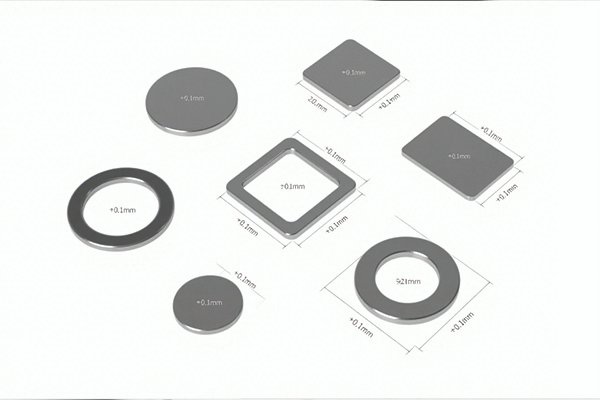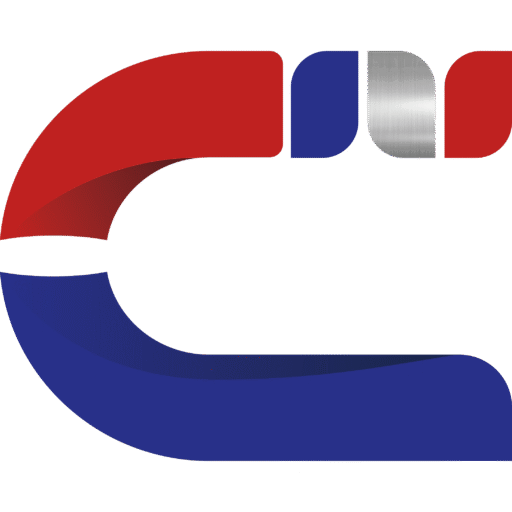Customized magnet materials
Neodymium Magnet– The strongest permanent magnet, made of neodymium, iron, and boron, widely used in high-performance electronics and compact devices.
Ferrite Magnet– Low-cost and corrosion-resistant but with weaker magnetic strength, commonly used in speakers, motors, and household appliances.
MagSafe Magnet – Apple’s magnetic attachment system for iPhones and accessories, enabling precise wireless charging alignment and easy detachment.
Magnet (SmCo) – High-temperature resistant and oxidation-proof, with the second-strongest magnetic force after neodymium, ideal for aerospace, military, and extreme environments.
AlNiCo Magnet – One of the earliest widely used permanent magnets, heat-resistant but with moderate strength, often found in sensors, meters, and vintage speakers.
FeCrCo Magnet – Machinable and adjustable via cold working, primarily used in precision instruments and specialized magnetic circuits.
Custom Magnet Design


Custom magnet shapes
We can customize different magnet shapes (disc, ring, block, cylinder, arc, etc.)
Custom magnet sizes
The length, width, height and special shapes can be accurately processed according to drawings or samples to meet personalized installation needs.


Customized magnetization direction
Freely set multi-pole, radial, axial and other magnetization directions to adapt to specific application scenarios.
Customized Plating
Nickel, zinc, epoxy and other plating options are available to enhance corrosion resistance or environmental adaptability.


Custom Tolerances
Strictly control dimensional accuracy (such as ±0.05mm) to ensure high consistency, suitable for precision instrument assembly.
Customized Materials
Choose different magnetic materials such as neodymium magnets, ferrites, samarium cobalt, etc. according to your needs to optimize performance and cost.
1. What are the minimum/maximum sizes for custom magnets?
Depends on material and process. Sintered NdFeB magnets can be as small as 0.5mm or up to 100mm; injection-molded magnets can be even smaller, while ferrite magnets allow larger sizes.
2. Which magnet materials are suitable for high-temperature environments?
Samarium cobalt (SmCo) and high-temperature grade NdFeB (H-series) magnets can operate at 150-350°C, while AlNiCo magnets withstand over 500°C.
3. Can the magnetization direction be customized?
Yes, axial, radial, multi-pole, or complex anisotropic magnetization is available. Provide technical drawings or specifications for direction requirements.
4. What surface treatment options are available?
Common coatings: nickel (anti-corrosion), zinc (low-cost), epoxy (insulation), gold/silver (special uses). Bare/uncoated magnets are also an option.
5. How precise can the tolerances be?
Standard sintered magnet tolerance: ±0.1mm; precision machining can achieve ±0.02mm. Injection/compression-bonded magnets have looser tolerances (~±0.3mm).
6. What is the lead time for custom magnets?
Simple orders: 2-3 weeks; complex processes (e.g., multi-pole magnetization) or bulk orders: 4-8 weeks (varies by requirements).
7. How to improve a magnet’s corrosion resistance?
Options: nickel/epoxy coating, SmCo material, stainless steel cladding, or avoiding humid/acidic environments.
8. What is the minimum order quantity (MOQ)?
Depends on the product, usually 3 pieces for sample and 500 pieces for bulk order (negotiable)
9. Can complex shapes (e.g., arcs, irregular holes) be customized?
Yes—sintered magnets use molds + post-machining; injection-molded magnets achieve complex shapes directly, but costs increase with complexity.
10. How is custom magnet performance tested?
Tests include Gauss meter (flux density), pull force gauge (adhesion strength), salt spray (corrosion resistance), with optional third-party certification.
